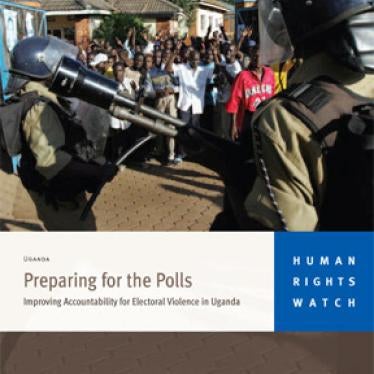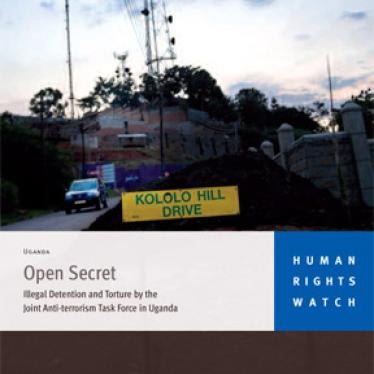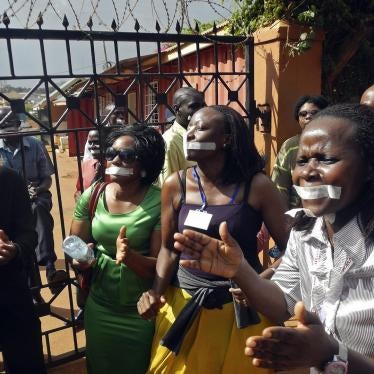(Kampala) - Uganda's government should reform the country's election laws to improve accountability for election-related crimes and reduce the risk of violence in the upcoming 2011 elections, Human Rights Watch said in a report released today. Politically motivated violence, intimidation, and bribery of voters have marred previous national elections in Uganda, but accountability for such crimes has been very weak.
The 28-page report, "Preparing for the Polls: Improving Accountability for Electoral Violence in Uganda," documents recent cases in which high court judges ruling on electoral petitions determined that candidates and campaign staff had committed criminal acts, yet the alleged crimes were rarely investigated and prosecuted. Some of those alleged to have committed the crimes during the 2006 elections continue to hold high office, Human Rights Watch said.
"Unpunished election-related crimes can sow the seeds of civil unrest, said Georgette Gagnon, Africa director at Human Rights Watch. "Uganda should act now to strengthen both its laws and its resolve to enforce them so that the 2011 elections can be both free and fair."
For example, in 2006 a judge set aside the election results for the parliamentary seat for Bugweri county, Iganga district. He said that the campaign by the then-minister of information, Ali Kirunda Kivejinja had been marked by "widespread intimidation, violence and torture of [opposition] supporters and agents.... The totality of the evidence on record supports the conclusion that [Kivejinja] ran his election campaign as if it was a war." The ruling said he even had a detention room in his home "for those he wanted to force into supporting him."
However, no one was ever held accountable for crimes committed during that campaign. In January 2009, President Yoweri Museveni named Kivejinjia to be minister of internal affairs, putting him in charge of police who will provide security during the 2011 campaign and on election day.
The report documents legislative and practical obstacles to prosecuting election-related crimes. The current three-month window to begin prosecution of electoral offences is significantly shorter than the period allowed in other African countries. Human Rights Watch recommended that parliament lengthen that window to increase the chances of holding perpetrators of serious crimes such as bribery and voter intimidation to account.
The Electoral Commission complaints desk serves as a first point of contact between victims of electoral crimes and the government, but its mandate and powers are unclear. Human Rights Watch recommended that parliament clarify these in the wording of the law and that alleged crimes be immediately and consistently handed over to police for investigation. In addition, the Ugandan government should ensure that investigations and prosecutions of violence are non-partisan. Some opposition party members faced trumped-up charges during the period leading up to the 2006 elections, fueling suspicion that the charges were politically driven.
Human Rights Watch also called on the government to prevent military involvement in the electoral process, particularly on election day, because its presence can intimidate candidates and voters. The military was recently implicated in the unnecessary use of force against protesters and rioters in Kampala in September.
"Uganda has an important opportunity to promote accountability for election-related crimes and prevent the violence that has marred elections in the past," Gagnon said. "It should fulfill its duties to Ugandan voters to ensure that the next campaign period and polling day are fair, peaceful, and credible."







